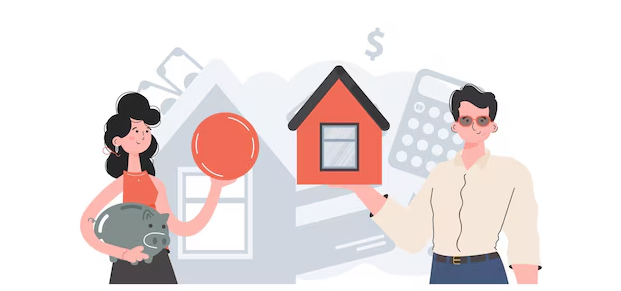The decision to refinance your mortgage is a significant one, often influenced by a range of personal and financial factors. For homeowners in the U.S., the fluctuating interest rates, changes in personal circumstances, and evolving financial goals can make refinancing an attractive option.
However, knowing when it’s the right time to make this move can be challenging. Refinancing isn’t just about securing a lower interest rate; it’s about ensuring that your mortgage aligns with your current and future financial plans. Here are five signs that it might be time to consider refinancing your mortgage.
1. Interest rates have dropped significantly

One of the most common reasons homeowners consider refinancing is when interest rates drop significantly. Even a small decrease in interest rates can lead to substantial savings over the life of a loan. If you’ve noticed that current mortgage rates are lower than what you’re currently paying, it may be a sign that refinancing could benefit you.
Lower interest rates can reduce your monthly payment, freeing up cash for other expenses or savings. Additionally, locking in a lower rate can protect you against future rate hikes. However, it’s essential to consider the costs associated with refinancing, such as closing costs and fees, which can offset some of the savings. Generally, if you can reduce your interest rate by at least 1%, it might be worth considering a refinance.
Furthermore, a lower interest rate can also allow you to build equity in your home more quickly. With a higher percentage of your payment going toward the principal rather than interest, you can increase your home’s equity faster, which could benefit you in the long run if you decide to sell or borrow against your home.
2. Your credit score has improved
Another strong indicator that refinancing might be a good idea is if your credit score has improved since you first secured your mortgage. A higher credit score typically qualifies you for better interest rates and terms. If your score has risen due to diligent credit management, paying down debt, or correcting errors on your credit report, refinancing could allow you to take advantage of these improvements.
When you initially took out your mortgage, your interest rate was likely based on your credit score at the time. If your score was lower, you might have been given a higher rate. With a higher credit score, you could qualify for a much lower interest rate, which could significantly reduce your monthly payments and the total amount of interest paid over the life of the loan.
Additionally, refinancing with an improved credit score can offer more favorable loan terms. You might be eligible for a loan with fewer fees or more flexible payment options. This could provide you with more financial stability and the ability to tailor your mortgage to better suit your current financial situation.
3. You want to change your loan term
Refinancing your mortgage also offers an opportunity to change the term of your loan, which can be beneficial depending on your financial goals. If you initially took out a 30-year mortgage, you might want to refinance to a 15-year loan to pay off your home faster. Conversely, if you’re finding your monthly payments challenging, refinancing to a longer-term loan can lower those payments, giving you more breathing room in your budget.
Refinancing to a shorter-term loan often means higher monthly payments, but it also means paying less interest over the life of the loan. This can lead to significant savings and the peace of mind of owning your home outright sooner. On the other hand, extending your loan term can reduce your monthly payments, making them more manageable, especially if you’re facing financial strain.
However, it’s crucial to weigh the pros and cons of each option. A shorter term might increase your financial burden in the short term, while a longer term could result in paying more interest overall. Evaluating your long-term financial goals and current financial situation will help determine which option is best for you.
4. Your home’s value has increased
An increase in your home’s value is another strong signal that it might be time to refinance. Rising property values can increase your home equity, giving you the leverage to secure a better loan. This equity can be used for various purposes, such as home improvements, debt consolidation, or even investing in other properties.
When your home’s value increases, refinancing can help you eliminate private mortgage insurance (PMI) if you initially put down less than 20%. PMI is an additional cost that protects the lender, but once you have more than 20% equity in your home, it’s no longer required. Refinancing can remove this cost from your monthly mortgage payment, leading to significant savings.
Additionally, refinancing to access your home’s equity through a cash-out refinance can provide you with the funds needed for major expenses or investments. However, this option should be considered carefully, as it increases the total amount of debt secured by your home.
5. Your financial situation has changed
Life is full of unexpected changes, and your financial situation might have shifted since you first took out your mortgage. Whether you’ve received a significant salary increase, experienced a job loss, or taken on additional financial responsibilities, these changes can impact your ability to manage your mortgage.
If you’re earning more than when you first got your mortgage, refinancing to a shorter term or a lower interest rate could be a smart move to pay off your loan faster and save on interest. Conversely, if your income has decreased or you’re facing other financial pressures, refinancing to lower your monthly payment can provide some much-needed relief.
It’s also worth considering a refinance if you’ve accumulated significant debt since taking out your mortgage. Consolidating high-interest debt into your mortgage through a cash-out refinance could lower your overall interest payments and simplify your financial obligations.
Conclusion
Refinancing your mortgage is a powerful tool that can help you take control of your financial future. Whether it’s securing a lower interest rate, changing your loan term, or adjusting to changes in your financial situation, refinancing can provide the flexibility and savings needed to achieve your goals.
However, it’s essential to consider the costs and long-term implications of refinancing. By carefully evaluating your circumstances and working with a trusted mortgage advisor, you can make an informed decision that supports your financial well-being.





